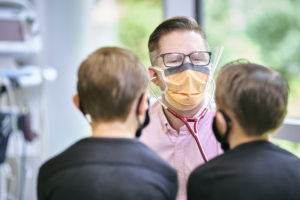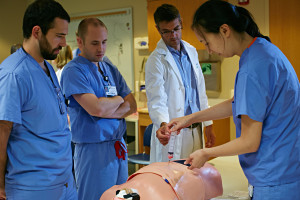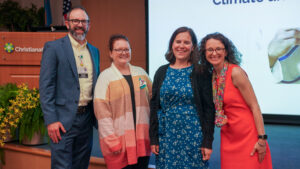This summer 12 Delaware undergraduates assisted Christiana Care health professionals in gathering data on important research topics, such as the value of palliative care consultations in the Medical Intensive Care Unit (MICU), that may one day lead to improved treatments and greater efficiencies in the delivery of care.
The undergraduates took part in lively oral and poster presentations at the 2015 Scholars Research Day & Luncheon on Aug. 14 at the John H. Ammon Medical Education Center, where student scholars summarized their research in PowerPoint talks and answered audience questions about their findings.
“These are talented students asking vital questions that those of us who are clinicians would like answers to, as we focus on improving the quality of care for our patients,” said Sandra P. Medinilla M.D., MPH, trauma surgeon and medical director of violence prevention. “I think it’s also great for Christiana Care to be invested in the community and to help train the future generation of physicians, nurses and researchers.”
Ten scholars worked with Christiana Care mentors through the Delaware IDeA Network of Biomedical Research Excellence (INBRE) program in collaboration with the Value Institute, and two students participated through the Value Institute’s Harrington Fund Student Summer Research Scholarship. The program was funded by INBRE and the Delaware Economic Development Office.
This year, Christiana Care made a concerted effort to include low-income students, first-generation college students, and students from ethnic and racial groups that are often under-represented in research funding.
“We have a wonderful cohort of scholars who’ve been gathering significant findings that have the potential to be published,” said Delaware INBRE principal investigator Scott Siegel, Ph.D., who is also director of Psychosocial Oncology & Survivorship at the Helen F. Graham Cancer Center & Research Institute.
The Delaware INBRE program is funded through the National Institute of General Medical Sciences, part of the U.S. National Institutes of Health. The broad aims of Delaware INBRE are: to foster a statewide network of biomedical research; develop individual researchers and research institutions; and cultivate biomedical initiatives while enhancing the state’s knowledge base and collaborations within the field.
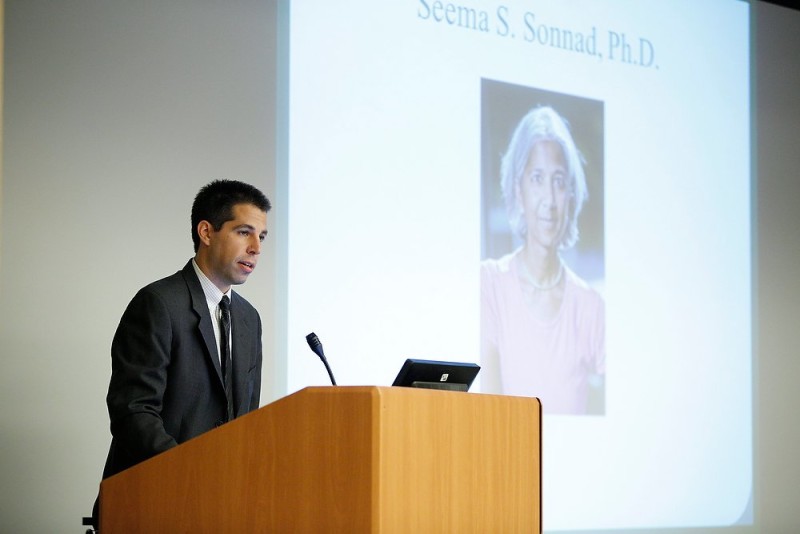
There was also a somber note to the day. Siegel said he regretted the absence of Seema Sonnad, Ph.D., former director of the Value Institute’s Health Services Research, who played a significant role in the selection of the scholars and was a strong supporter of INBRE. She suffered a fatal cardiac arrhythmia while running an ultra-marathon on May 27.
“Her presence is greatly missed,” Siegel said.
For the scholars, the 10-week INBRE program is a rare opportunity to research medical issues from clinical and public health perspectives. They also have a chance to work closely with Christiana Care providers in ways that help students assess future careers as graduate researchers or health care providers.
“The summer program is very rewarding and the chance to assist very gifted doctors,” said Dunia Tonob, a University of Delaware junior who is thinking about becoming a pediatrician. “I loved working with Dr. Roshni Guerry.”
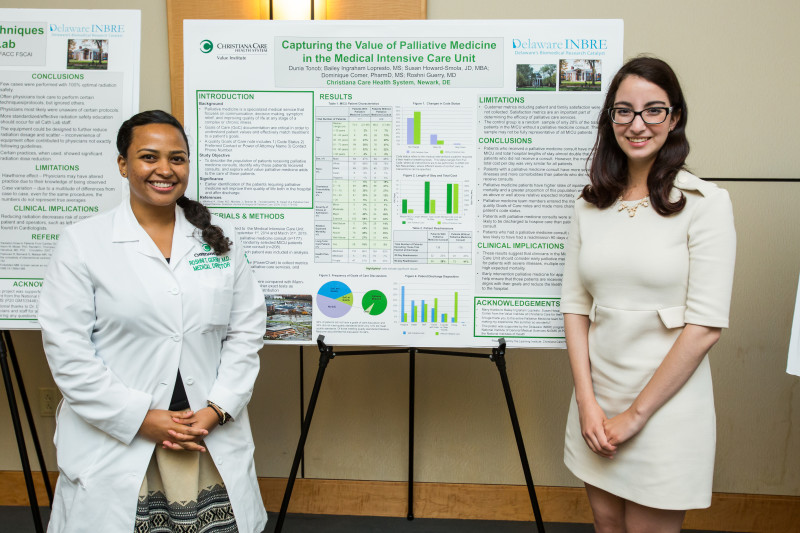
Tonob, under the guidance of Guerry, medical director of Palliative Medicine and a scholar in the Value Institute, compared a sample of patients in the MICU who received palliative medical consults with those who did not. In the study, Tonob explored the value that palliative medicine adds to patient care.
Tonob found that patients with palliative consults tend to receive treatment that aligns with their goals and reduces the likelihood of a readmission to the hospital. She reported that patients receiving the consults are significantly more likely to be discharged to hospice care than patients without a consult.
“Dunia was able to do a deep dive into the data and report findings that we only understood anecdotally before,” said Dr. Guerry. “She has also prepared us for future research.”
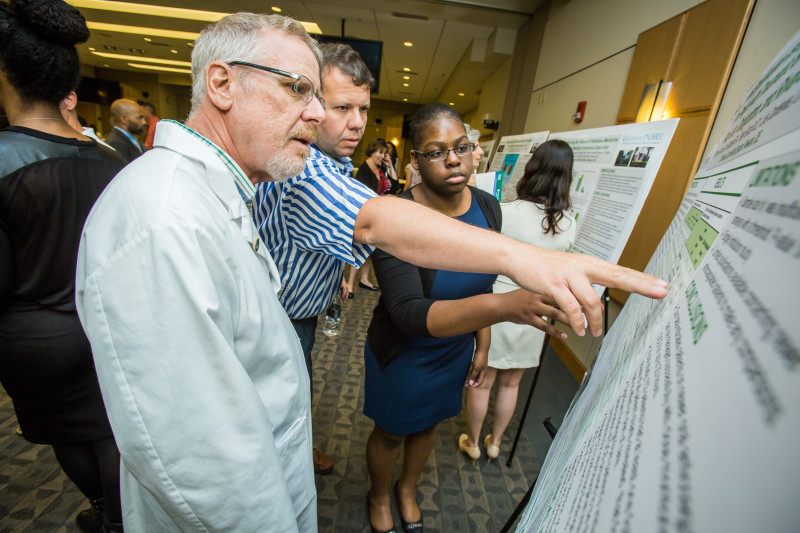
The summer scholars also studied:
- The number of repeat victims of gunshot violence treated at Christiana Care from 2005 to 2014. University of Delaware senior Jillian Buck found that out of 1,484 patients, 92 had been shot more than once — a 6.2 percent recidivism rate. Being shot is a risk factor for being shot a second time, said Dr. Medinilla, mentor on the project. Dr. Medinilla added that the data on recidivism is useful in looking at gun violence as a disease and thinking about what interventions could prevent a shooting reoccurrence.
- The U.S. News & World’s Report list of the top 17 performing hospitals and how the list compares with performance indicators for the five most common internal medicine diagnoses. These are congestive heart failure, pneumonia, myocardial infarction, sepsis and chronic obstructive pulmonary disease, according to Wesley College senior Andre Jones, who carried out the study under the guidance of his mentor LeRoi S. Hicks, M.D., MPH, vice chair of the Department of Medicine. Jones found that the list of top hospitals, which is based on outcomes for surgery and specialty procedures, is poorly correlated with internal medicine procedures. “Hospitals on the list are all excellent,” said Dr. Hicks. “But consumers should not assume that the rankings apply across the board for every condition.”

